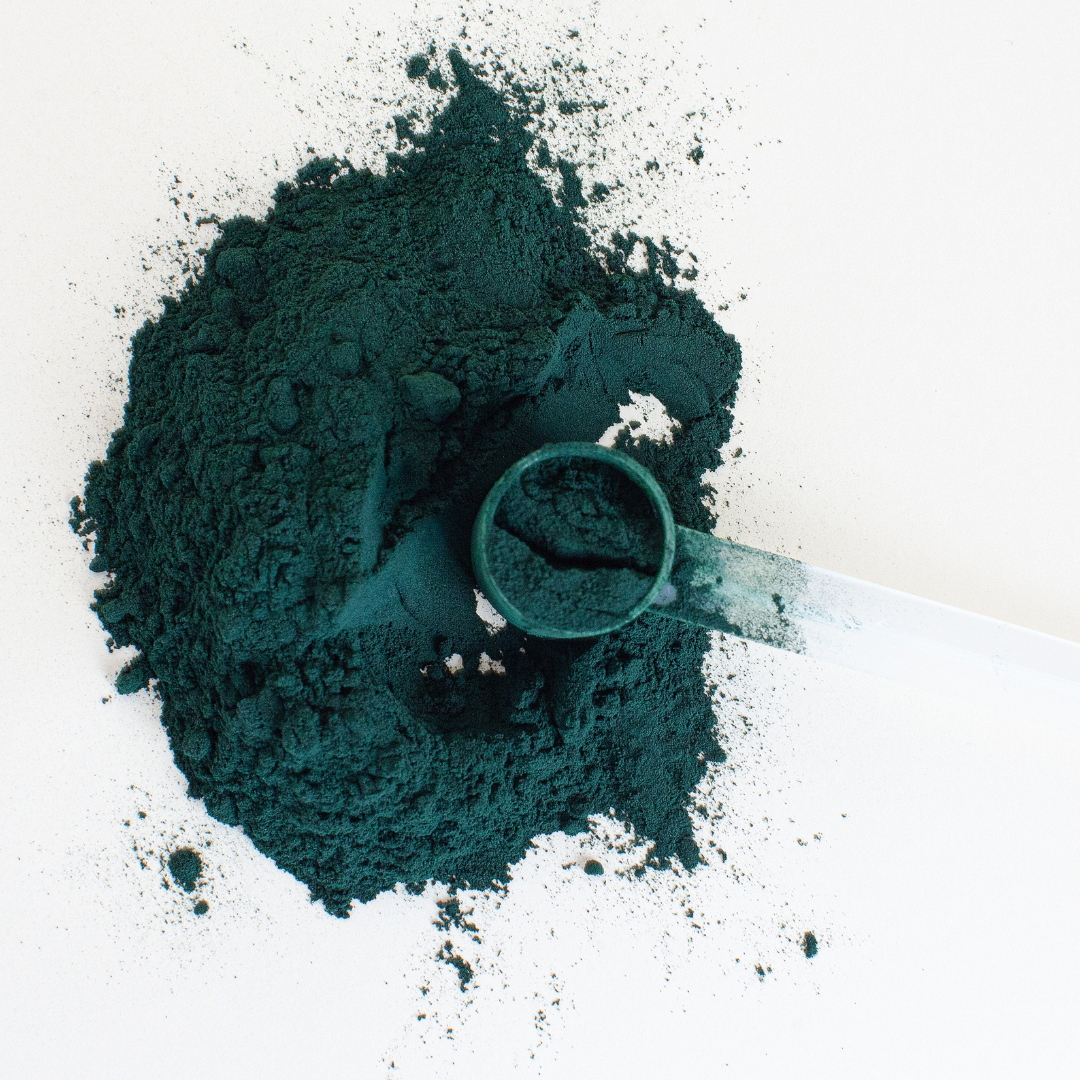Spirulina and seaweed are both types of algae that have gained popularity as superfoods due to their dense nutrient profiles. As you may know, we are seaweed superfans and massive advocates for the plethora of benefits this macro-algae can provide. But how does seaweed differ from spirulina? Should we be incorporating both into our diet? Let's explore some of their key differences.
Both seaweed and spirulina are very nutrient dense making them popular in the health and wellness world. Spirulina is a good source of vitamins B1, B2, B3 and iron; originally popular with the ancient Aztecs as they believed it supplied them with energy for long distance travel.
Seaweed and spirulina can often be confused as they are both referred to as algae. Spirulina is actually a biomass of cyanobacteria - what is that I hear you ask? Cyanobacteria are bacteria that use light from the sun to produce food, aka. photosynthesis! This explains why spirulina is referred to as 'blue-green algae' even though it technically isn't a true algae.
Depending on the dosage, both spirulina and seaweed are good sources of vitamins, minerals, and antioxidants, which can help boost immunity, reduce inflammation, and support overall health. They both share some health benefits, but they also have some differences in terms of their nutritional composition.

Research suggests that spirulina has antioxidant, anti-inflammatory and heart-protecting properties. The algae is often taken in supplement form or added to smoothies via powders. However, much like sea moss, spirulina still requires research to validate these extensive health claims, particularly for its use in reducing cholesterol.[1] As with any supplement, it is recommended to choose high-quality spirulina products in order to ensure maximum absorption. The conditions and environment spirulina is grown in is also important to consider as it can be contaminated with heavy metals and bacteria when harvested in unmonitored waters.
The nutritional composition of seaweed does massively depend on the species in question, with over 10,000 species of seaweed existing globally! Doctor Seaweed's Weed & Wonderful Supplements contain the species, Ascophyllum nodosum which is sustainably harvested from the pristine waters of the Outer Hebrides. Containing levels of potassium, calcium and magnesium, this seaweed is most prominently rich in the essential nutrient iodine.
With over 2 billion people globally deficient in iodine, symptoms can range from depression, weight gain, dry skin and sensitivity to the cold. Just one 500mg capsule from Doctor Seaweed's range of nutritional supplements contains your daily intake of iodine. Benefits include thyroid support, improved energy levels, radiant skin and weight management.
Each product is natural, plant-based and allergen free, making it easy to incorporate the nutritional wonder of seaweed into your diet. If you think you could be iodine deficient or you're unsure which supplement is best for you, click here to take our quick quiz to find out!
To view the full range of Doctor Seaweed's supplements, click here.
References:
[1] https://www.ncbi.nlm.nih.gov/pmc/articles/PMC3136577/

